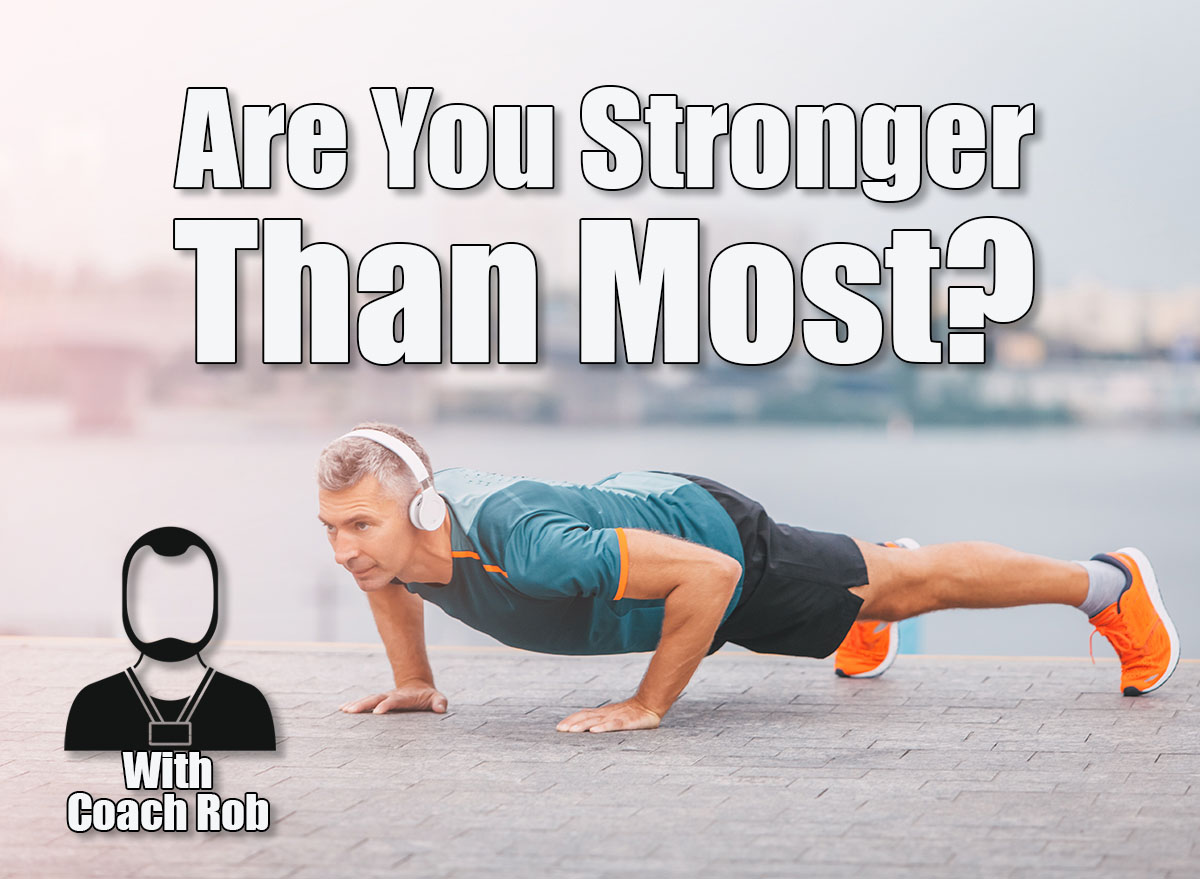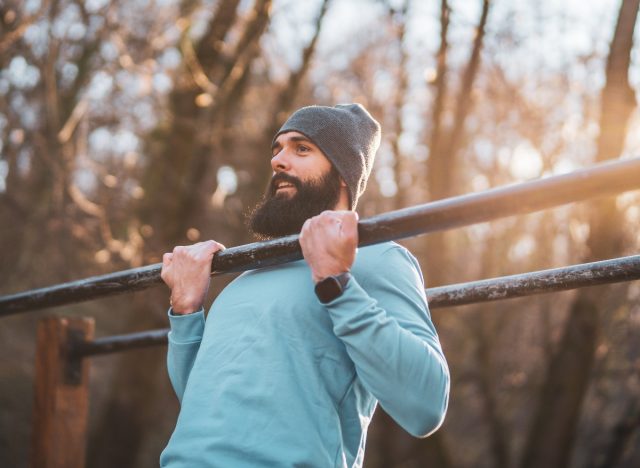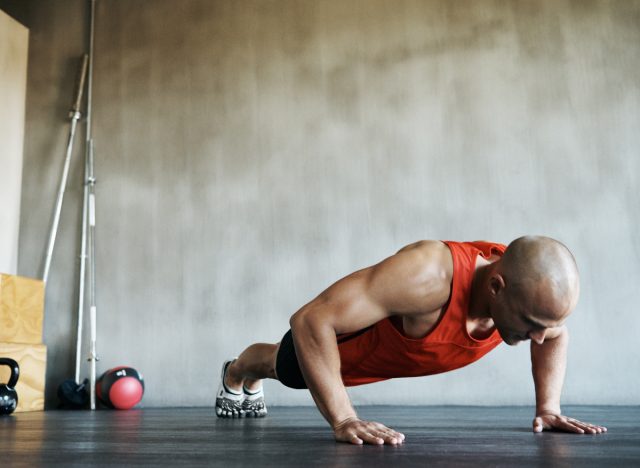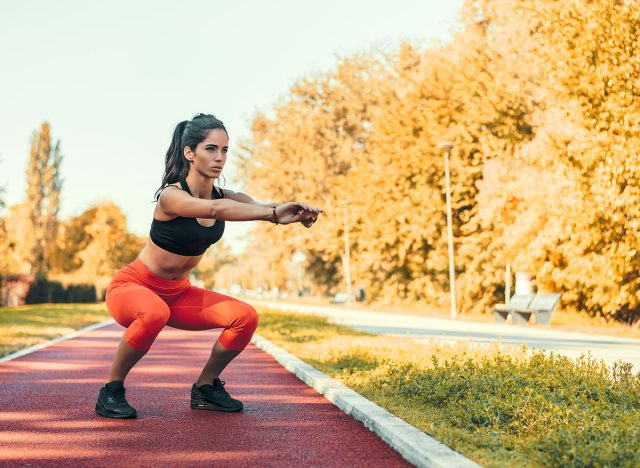5 Moves That Show Whether You’re Stronger Than Most After 50

Total-body strength is rooted in six fundamental movement patterns: squat, lunge, hinge, pull, push, and carry. We’ve rounded up five essential moves that put these patterns to the test so you can determine how strong you are, according to fitness pros.
“Unlike traditional tests (such as sit-to-stand and grip strength), which establish minimum standards, the moves I provided require above-average strength, stability, and control. They’re pattern-based, practical, and harder to ‘cheat,'” says Rob DelaCruz, co-owner and director of programming at Vero Strength + Conditioning.
In addition, these exercises evaluate the balance, coordination, and muscle stamina required to lead an independent life, notes Shahinaz Soliman, MD, board-certified family physician with 20+ years of experience in patient care.
5 Moves That Show Whether You’re Stronger Than Most After 50
Farmer’s Carry
“This move challenges grip, posture, and trunk strength—qualities linked to independence and longevity,” DelaCruz tells us.
- Hold a heavy dumbbell—50% of your body weight—in each hand at your sides.
- Start walking forward, keeping your torso still.
- Complete 3 to 4 carries, walking 50 to 100 feet.
Weighted Pull-Up

“This exercise demonstrates elite pulling power and shoulder health; very few adults over 50 can do even one strict pull-up,” notes DelaCruz.
- Attach a weight—a dip belt with a plate or hold a dumbbell with your feet. Add 10 to 25 pounds total.
- Hang onto a pull-up bar using an overhand grip.
- Engage your core and pull your chest up toward the bar.
- Once your chin clears the bar, hold for a moment, then lower.
- Complete 3 to 5 sets of 3 to 5 reps.
Pushup

“The pushup tests upper-body pushing strength of chest, shoulders, and triceps with the use of core stability,” Soliman points out. “The form quality and the number of reps give a glimpse of muscular endurance and general body conditioning.”
- Assume a high plank position, hands under your shoulders and body straight.
- Bend your elbows and lower your chest toward the floor.
- Maintain a long, straight body as you lower.
- Press back up, straightening your arms.
- Complete 3 sets of 8 to 12 reps.
Single-Leg Deadlift
“The single-leg deadlift stresses hamstring, buttock, and lower back muscles and also tests balance and coordination,” Soliman says. “This unilateral move highlights strength asymmetries and neuromuscular control critical for injury prevention.”
- Hold a dumbbell in each hand and shift your weight to one leg.
- Keep a slight bend in the standing knee.
- Lift the opposite leg straight behind you and lower the dumbbell, keeping your lower back, shoulders, and hips straight as you do so.
- Return to a standing position.
- Complete 3 sets of 8 reps per leg.
Bodyweight Squat

“An introductory lower-body exercise that evaluates the strength of the quadriceps, glutes, and core, joint mobility, and balance,” Soliman points out. “The capacity to do a controlled squat on this volume depicts functional strength, which is essential in everyday life.”
- Stand tall, feet shoulder-width apart on the floor.
- Extend your arms ahead of you or place your hands on your hips.
- Bend at the knees and hips as you lower into a squat.
- Descend until your thighs are parallel to the floor.
- Press through your heels to rise back up to standing.
- Perform 3 sets of 10 to 15 reps.
Looking for easy ways to lose fat? Here’s How Long Your Walking Workout Should Be To Shrink Belly Fat.